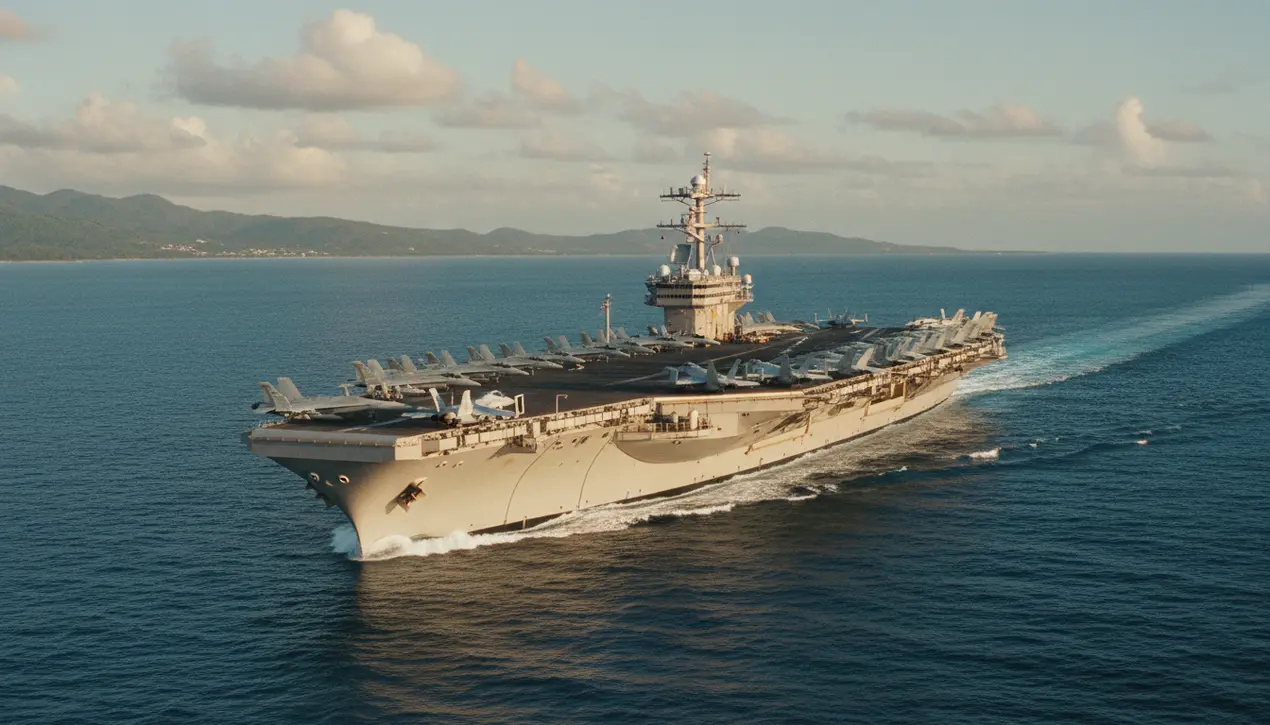
Politicsconflict & defenseMilitary Operations
US Aircraft Carrier Arrives in Caribbean Amid Venezuela Tensions.
OL
Oliver Scott
4 hours ago7 min read3 comments
The arrival of the USS Gerald R. Ford, the world's largest and most technologically advanced warship, in the Caribbean is a calibrated maneuver in a high-stakes geopolitical standoff with Venezuela, a deployment that carries the distinct weight of historical precedent and future-facing risk assessment.This isn't merely a routine naval exercise; it's a floating statement of power projection, a 100,000-ton signal to the government of Nicolás Maduro that the United States is prepared to escalate its response to what it perceives as destabilizing actions in the region, from deepened alliances with U. S.adversaries like Russia and Iran to persistent internal repression and regional posturing. The Ford itself is a symbol of this new era of great power competition—a $13 billion behemoth featuring electromagnetic aircraft launch systems and a larger air wing capable of sustaining a higher sortie rate than any carrier in history, effectively bringing a persistent, mobile airbase to the doorstep of a nation whose economic and political collapse has long been a source of regional anxiety.Analysts are immediately drawing parallels to past naval blockades and shows of force, from the Cuban Missile Crisis to the 1989 intervention in Panama, but the contemporary calculus is far more complex, layered with cyber warfare capabilities, information operations, and the ever-present threat of asymmetric responses. The primary risk scenario isn't necessarily a conventional military clash; it's a miscalculation.Maduro's regime, backed by a modernized if smaller military and foreign partners, could interpret the carrier's presence as a prelude to invasion, potentially triggering a cycle of provocative counter-moves, such as advancing military exercises with non-regional powers or accelerating controversial resource extraction projects in disputed territories like the Essequibo region of Guyana. Conversely, the Biden administration faces its own domestic and international balancing act, using the Ford to demonstrate resolve to allies in Colombia and Brazil while avoiding the appearance of gunboat diplomacy that could galvanize anti-American sentiment across Latin America and provide propaganda fodder for Caracas.The strategic implications ripple beyond the Caribbean, serving as a live-fire test case for how the U. S.Navy will leverage its premier assets to manage regional crises while its attention is divided between the Indo-Pacific and European theaters. The question now is whether this demonstration of overwhelming force will compel de-escalation and a return to negotiated pathways, or if it will simply raise the temperature in a volatile region, setting the stage for an unpredictable and potentially costly confrontation that neither side may have initially sought but both are now actively preparing for.
#US Navy
#Gerald R Ford
#Caribbean
#Venezuela
#military deployment
#tensions
#lead focus news
Stay Informed. Act Smarter.
Get weekly highlights, major headlines, and expert insights — then put your knowledge to work in our live prediction markets.
Comments
Loading comments...
© 2025 Outpoll Service LTD. All rights reserved.